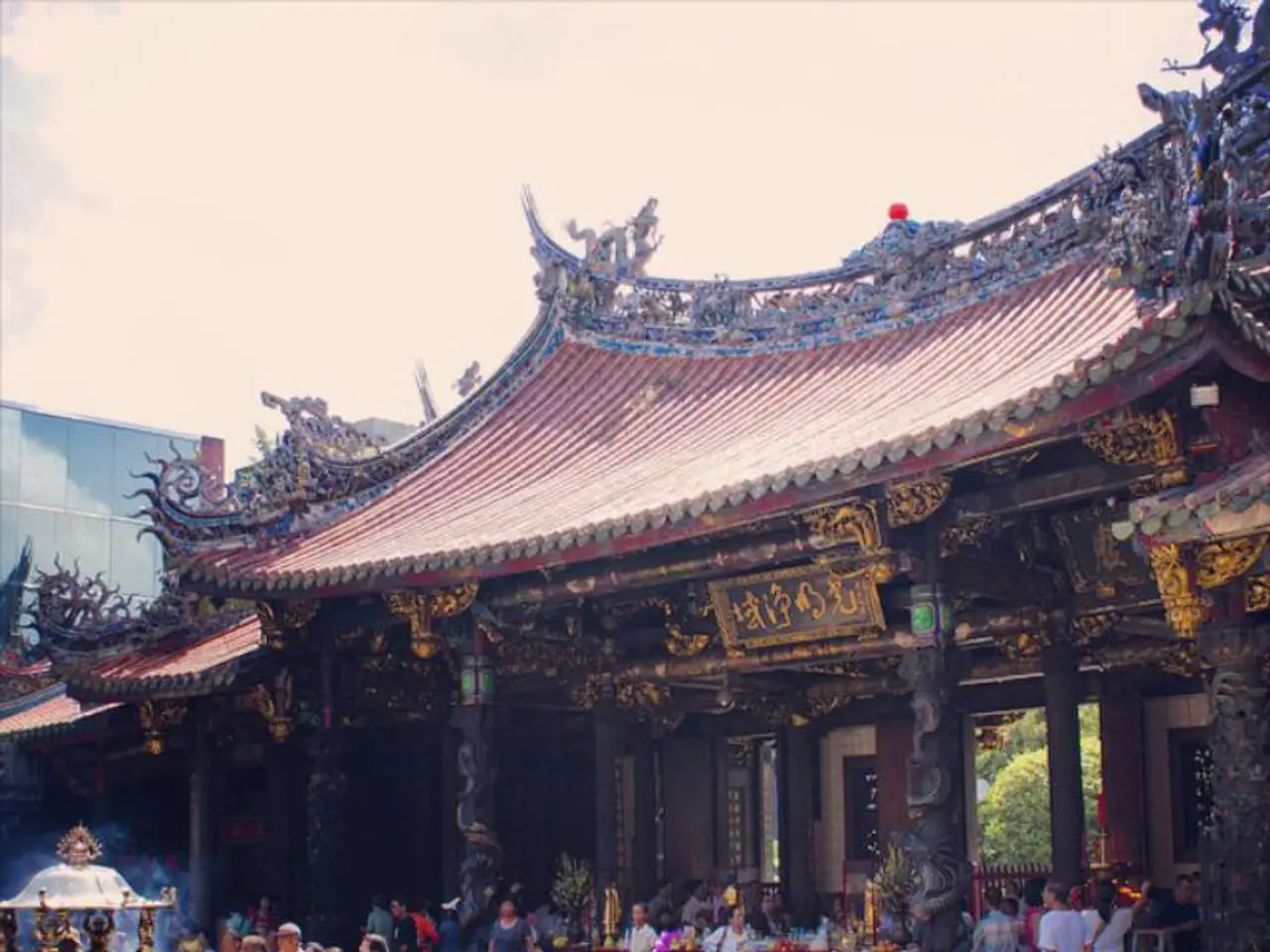Toyota's "Test Track for Mobility," Woven City, Set for Fall Debut
In the shadow of Mount Fuji, Japan, automotive giant Toyota is building a groundbreaking city that embodies its vision for the future of urban living. Known as Woven City, this 175-acre metropolis, once a factory site in Susono, is transforming into a human-centered living laboratory for testing and developing future mobility, autonomous technologies, and sustainable living innovations [1][2][3].
Purpose
Serving as a full-scale, real-world testbed for cutting-edge technologies, Woven City aims to be a research and innovation hub, allowing Toyota and collaborators to develop and refine future mobility and lifestyle solutions [1][3][4]. The city emphasizes a human-first approach to urban planning, enhancing safety, accessibility, and quality of life by seamlessly integrating technology with daily living [1][2].
Sustainability and environmental responsibility are at the heart of Woven City, with the city primarily powered by hydrogen fuel cells and solar energy, aiming for emission-free, climate-positive urban living to combat climate change [1][3]. The initial residents, called "Weavers," include Toyota employees, researchers, entrepreneurs, and diverse individuals worldwide who live, interact, and provide real-time feedback on innovations, accelerating technology development aligned with human needs [3][4].
Key Features
Woven City boasts a three-tiered street design, with zones for autonomous vehicles, personal mobility (bikes, scooters), and pedestrians, ensuring safety and efficient traffic flow while fostering a pedestrian-friendly environment [1][2]. The city will also feature an autonomous vehicle fleet, including e-Palette driverless vehicles for shared transport, deliveries, and mobile services such as retail, medical clinics, and food demonstrating advanced mobility solutions [2][3].
Advanced robotics and AI integration will be evident in homes and public spaces, where robots will assist residents for wellbeing monitoring and convenience, illustrating seamless human-robot collaboration [3]. Sustainable architecture will be a cornerstone of the city, with buildings constructed primarily from wood using traditional Japanese joinery combined with robotic methods, equipped with solar panels and hydrogen fuel cells for clean energy use [3].
Woven City will also feature a real-time data-driven environment, with sensors distributed throughout the city collecting data continuously, allowing infrastructure and systems to adjust dynamically according to residents’ living styles [1]. Additionally, the city has been designed as an open platform where industries, researchers, and startups collaborate to co-create and test technologies in mobility, connectivity, and urban living [1][2][3][4].
With preparations in full swing to begin testing various technologies at Woven City, the first phase of construction is now complete, and 2000 residents, including Toyota employees and their families, retired people, retailers, visiting scientists, industry partners, entrepreneurs, academics, and their pets, are set to move into Woven City this fall as each phase is completed [3][4]. All transportation in Woven City will be low to zero emission.
A former factory building at Woven City has been transformed into a laboratory large enough to house an airplane, for partners like Joby, who recently showcased a flying car at Woven City, capable of making fast and traffic-free trips from Woven City to Tokyo [4]. Woven City is designed to be a human-centered, ever-evolving city, with its focus on mobility of people, goods, information, and energy [1].
First announced by Chairman Toyota at CES in 2020, Woven City has received Japan's first LEED Platinum certification for a community, the highest standard awarded [5]. Five years have passed since Akio's initial announcement about Woven City, and Chairman Toyoda recently appeared at CES 2025 for a press conference to announce the opening of Phase 1 at Woven City, a "test course for mobility" [6].
In essence, Toyota's Woven City is both a bold prototype for future smart cities and a manifestation of Toyota's commitment to innovation, sustainability, and enhancing human life through technology [1][3].
In the innovative landscape of Woven City, artificial intelligence is set to become an integral part of residents' daily lives, with robots assisting in homes and public spaces for wellbeing monitoring and convenience [3]. Furthermore, the city serves as a collaborative hub for various sectors, including finance, transportation, technology, and artificially-intelligent industries, fostering co-creation and testing of technologies in mobility, connectivity, and sustainable urban living [1][2][3][4].




